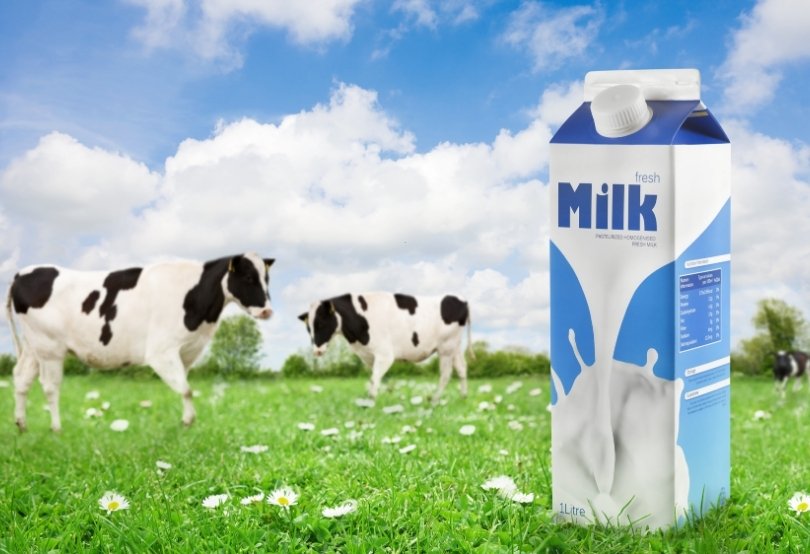
What is Cow’s Milk Allergy?
Cow’s milk allergy is one of the most common food allergies in infants and young children. It occurs when the immune system mistakenly identifies proteins in cow’s milk as harmful, triggering an allergic reaction. Cow’s milk contains two main proteins: casein and whey, and either or both can cause an allergic response. Symptoms can range from mild to severe and can affect different parts of the body.
Unlike lactose intolerance, which involves the digestive system’s inability to break down lactose, cow’s milk allergy is an immune response and can lead to more severe symptoms. Most babies outgrow cow’s milk allergy by the age of three, but some may continue to have the allergy into childhood or adulthood.
What are the Symptoms of Cow’s Milk Allergy?
The symptoms of cow’s milk allergy can vary widely, depending on the individual’s sensitivity. Common symptoms include:
– Skin reactions, such as hives, eczema, or swelling of the lips, face, or throat.
– Gastrointestinal symptoms, including abdominal pain, vomiting, diarrhea, or colic in infants.
– Respiratory symptoms, such as wheezing, coughing, or nasal congestion.
– In severe cases, anaphylaxis, a life-threatening allergic reaction that requires immediate medical attention.
Symptoms may appear within minutes to hours after consuming cow’s milk or milk-based products.
How Should a Baby with Milk Allergy Be Fed?
Feeding a baby with cow’s milk allergy requires careful management to avoid exposure to milk proteins. Breastfeeding is often recommended, as it can reduce the risk of allergic reactions. However, if the baby is allergic to cow’s milk proteins that may be passed through breast milk, the mother may need to eliminate dairy from her diet.
If breastfeeding is not possible, hypoallergenic formulas are typically recommended for babies with cow’s milk allergy. Solid foods should be introduced carefully, and parents should consult with a pediatrician or allergist to identify safe foods.
What Kind of Formula is Given to Babies with Milk Allergy?
For babies who cannot tolerate breast milk or have a cow’s milk allergy, specialized formulas are available. The most common types of formulas for milk allergy include:
1- Extensively Hydrolyzed Formula
This type of formula contains proteins that have been broken down into smaller fragments, making them less likely to trigger an allergic reaction. Extensively hydrolyzed formulas are recommended for most infants with cow’s milk allergy.
2- Amino Acid-Based Formula
For infants with severe cow’s milk allergy or those who do not tolerate hydrolyzed formulas, amino acid-based formulas are an option. These formulas contain individual amino acids rather than whole proteins, making them the least allergenic.
Does Milk Allergy Cause Diarrhea?
Yes, cow’s milk allergy can cause gastrointestinal symptoms, including diarrhea. In some cases, the allergy may lead to chronic diarrhea, which can affect the baby’s growth and overall health. Other digestive symptoms may include vomiting, abdominal cramps, and gas.
When Do Babies with Milk Allergy Get Better?
Most babies with cow’s milk allergy outgrow the condition by the time they are three to five years old. However, the timeline varies for each child, and some may continue to experience symptoms into childhood or even adulthood. Regular follow-up with a pediatrician or allergist is essential to monitor the baby’s progress and determine when it is safe to reintroduce milk into their diet.
Why Choose Us?
Our clinic specializes in allergies and allergy testing, and we stand out in the field of health tourism with the high standards of service we provide. Here are the key reasons why you should choose us:
Expert Doctor Team
At our clinic, we have highly experienced doctors at the professor level who are experts in the field of allergies. With years of experience in allergy treatment and testing, we provide the most accurate diagnosis and treatment processes. Our professor is skilled in managing even the most complex allergy cases and delivering the most effective solutions.
Cutting-Edge Allergy Tests
Your health is our top priority. In our clinic, we use state-of-the-art allergy testing technologies that are recognized globally. This allows us to obtain the most accurate and rapid results, ensuring that your treatment plans are created in the best possible way. Our tests are conducted according to international standards.
Comfort and Luxury Services
We don’t just focus on treatment; we also aim to provide a comfortable experience. During your treatment, we offer five-star hotel accommodations to ensure you feel at home throughout the process. Your comfort is guaranteed with the luxurious services we provide.
Transfer and Transportation Convenience
For patients coming from abroad or from other cities, we offer VIP transfer services. From the airport to our clinic, and from our clinic to your hotel, we are with you every step of the way. We take care of every detail to ensure your comfort and safety.
Personalized Approach
Every patient’s health condition is unique, and we tailor our solutions to meet each individual’s specific needs. Throughout your treatment process, we stay closely connected with you, and our professional team is by your side every step of the way.






